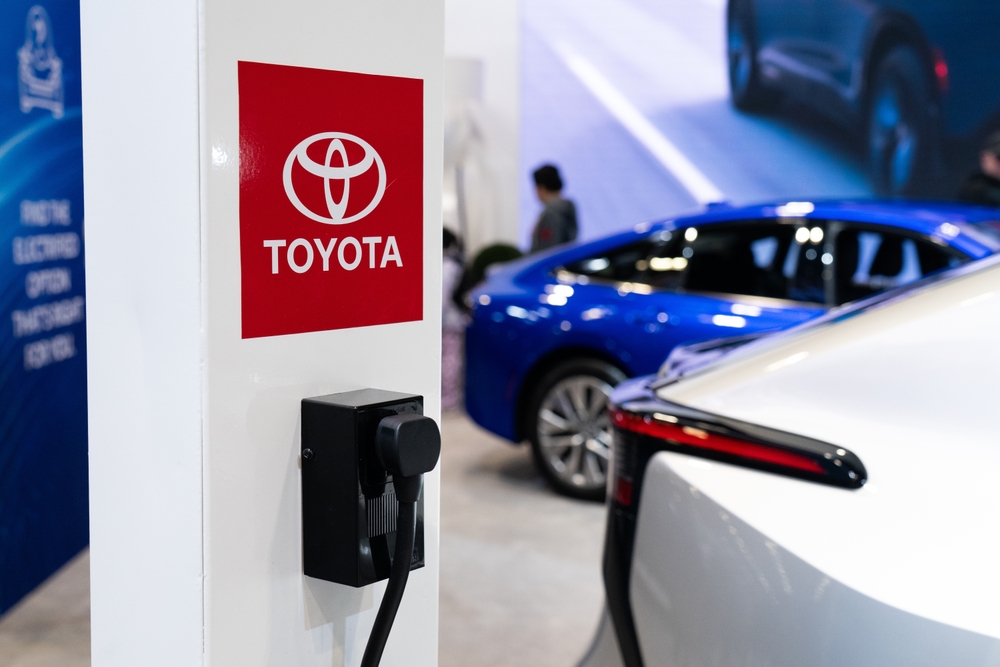The UK Government and Toyota are collaborating on a ground-breaking £30m investment to accelerate the development of zero-emission vehicles.
The initiative, led by Toyota in partnership with UK academia and emerging technology companies, aims to foster electric vehicle innovation, support skilled engineering jobs and strengthen the UK’s position at the forefront of clean vehicle technology.
Commenting on the partnership, UK Industry Secretary Chris MacDonald said: “This demonstrates the power of industry partnerships to drive innovation and help investors build a globally competitive electric vehicle supply chain in the UK.”
“Economic growth is our top priority and by funding a world-leading automotive sector, our Modern Industrial Strategy is creating the right conditions for increased investment, delivering growth, supporting jobs and delivering opportunity to every region of the UK.”
Government and industry collaboration to advance electric mobility
The project, which is worth £15 million of government support and private investment, will focus on increasing the feasibility of next generation zero-emissions technologies.
The funding is part of the UK’s Advanced Propulsion Center (APC) collaborative research and development programme, which aims to unlock further private investment and strengthen the country’s growing green manufacturing ecosystem.
The move is in line with the Government’s Transformation Plan, which outlines its commitment to delivering clean transport and supporting high-quality engineering jobs across the UK.
Toyota and UK partners lead innovation
Toyota is at the heart of this initiative, working alongside a network of project partners including the University of Derby and Elm Mobility Limited.
Together, the two companies will combine research excellence and entrepreneurial agility to explore electric micromobility vehicles, a compact, efficient and sustainable transportation solution tailored for urban environments.
The partnership will not only drive the development of cutting-edge zero-emission vehicles, but also build specialist skills in the UK’s advanced manufacturing sector.
This is expected to position the UK as a center for clean car design and production, and create and sustain hundreds of highly skilled jobs.
Cutting-edge technology for smarter, greener travel
Upcoming vehicle prototypes will integrate several pioneering features, including a solar-powered roof for increased energy efficiency, advanced connectivity systems for seamless smart city integration, and the use of lightweight and recyclable materials to reduce environmental impact.
These innovations represent an important step towards sustainable and circular manufacturing and more efficient electric mobility.
Supporting the UK’s long-term zero emissions target
The funding comes as part of a wider strategy to strengthen the UK’s zero-emission vehicle manufacturing supply chain.
Earlier this year, the government launched DRIVE35, a £2.5 billion program that will run until 2035.
The initiative provides funding and R&D support for projects ranging from gigafactories and start-ups to strategic vehicle prototypes, supporting the UK’s ambitions to become a world leader in green car technology.
Rick Adams, Innovation Delivery Director at APC, added: “APC is extremely proud to be supporting Toyota with this EV urban mobility project, which embodies much of what DRIVE35 aims to support, including innovation, British competitiveness, productivity and zero-emission vehicles.”
“As an integral part of the UK automotive industry, we are delighted that Toyota is partnering with some of our innovative small business businesses such as ELM and world-class academics at the University of Derby to deliver cutting-edge vehicle concepts designed, developed and tested in the UK.”
Powering a cleaner future
The UK is leading the way to a new era of zero-emission vehicles by driving innovation and investing in collaborative research.
This partnership between government, industry, and academia is more than an investment in technology, it’s an investment in a future of sustainable transportation, cleaner air, and a stronger, greener economy.
Source link

